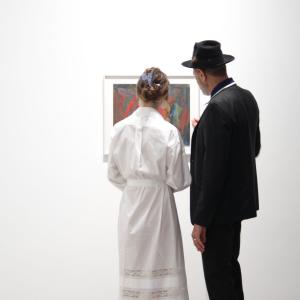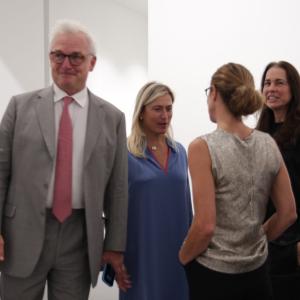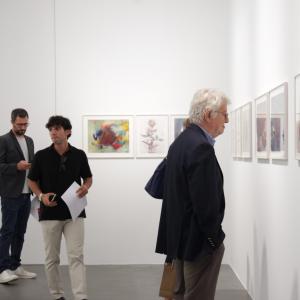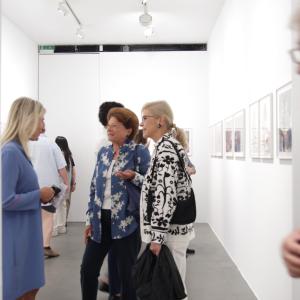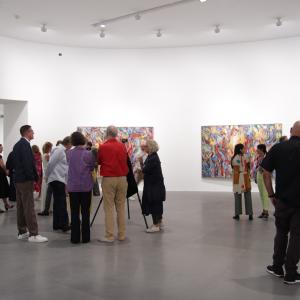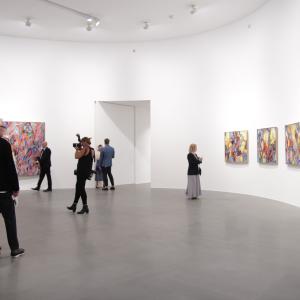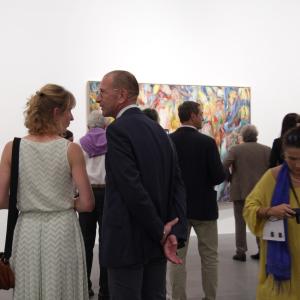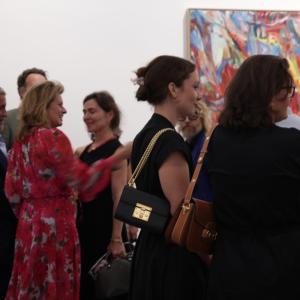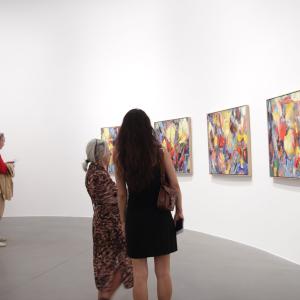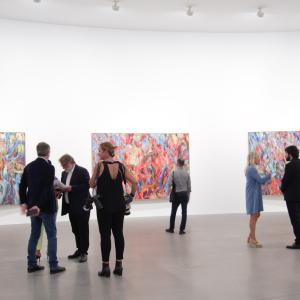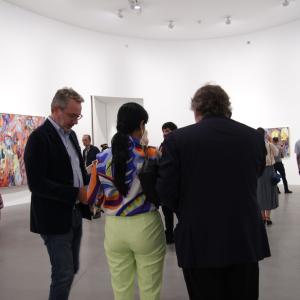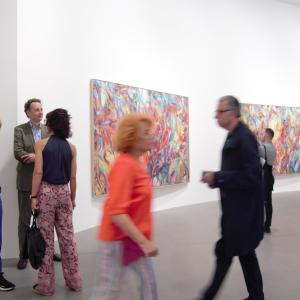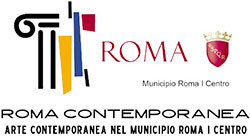Gagosian is pleased to announce August, an exhibition of new large-scale paintings and works on paper by Sabine Moritz at the gallery in Rome. This is the artist’s first exhibition with Gagosian and her first in Italy.
Moritz’s body of paintings, drawings, and prints represents a succession of suspended moments, juxtaposing interpretations of the artist’s immediate surroundings and the natural world with, in her previous work, deconstructed documentary images, and, in more recent paintings, a narrative approach enhanced by the paintings’ broad horizontal format. Adapting and repurposing a catalogue of symbolic and abstract motifs, she ponders the mercurial dynamics of transience and decay. Her works enhance our sensitivity to the passage of time, locating personal experience within shared narratives.
Since 2015, Moritz has worked increasingly in an abstract mode, producing improvised paintings and drawings that she dubs “psychological landscapes.” In these, she addresses her enduring themes of recollection and history in a consciously ambiguous manner inspired by perceptual processes. Hunting for primal sensory experience, she avoids preliminary sketching, confronting the viewer with a dialogue between color and gesture.
In Moritz’s new canvases, dense arrays of overlapping brushstrokes are allied with chromatic contrasts to embody an intense visual freedom. Applying paint vigorously and in layers—sometimes as impasto, which she then scrapes back to imbue her surfaces with a varied texture—she often favors the collision of shapes and hues over compositional harmony but retains a visual rhythm throughout.
In the paintings on view in Rome, which include the artist’s four largest paintings to date, Moritz again plays with the possibilities and associations of repetition and difference to consider the ongoing possibility of hope and beauty under even the most difficult circumstances. The works in August allude to Ovid’s Metamorphoses as well as to a range of art historical sources. Evoking liminal states of being and figures in transition, they incorporate semi-obscured figures that seem to emerge from within abstract compositions subtly colored with references to nature; in alluding to Titian’s rendition of the encounter between Artemis and Actaeon, for example, she addresses themes of human fragility, sensuality, and strength, while evoking a sense of longing for a lost idyll. And in Actaeon’s End (2023), she continues her practice of beginning each exhibition with a link to her previous one, maintaining a vital continuum between each project.

